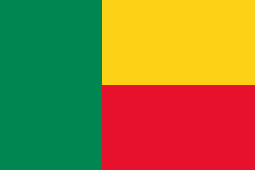Media in Benin
| Part of a series on the |
| Culture of Benin |
|---|
 |
| History |
| People |
| Languages |
| Cuisine |
| Religion |
| Art |
| Literature |
|
Music and performing arts |
|
Monuments |
|
Symbols |
|
Media in Benin was formerly controlled by the government but there has been a loosening of control since the introduction of democracy to the country in the 1990s.
Telephone
The state provides telegraph and telephone service and government-owned radio and television services broadcast in French, English, and 18 indigenous languages. In 2003, there were an estimated nine mainline telephones for every 1,000 people. The same year, there were approximately 34 mobile phones in use for every 1,000 people.
Television and Internet
As of 2005, there was one state TV channel 'Ortb', a few commercial TV channels including Golfe TV Africa, LC2, Canal3 and BB24 and more than 30 state, commercial and local radio stations. In 2003, there were an estimated 445 radios and 12 television sets for every 1,000 people. The same year, there were 3.7 personal computers for every 1,000 people and 10 of every 1,000 people had access to the Internet.
Journalism
In 2002, there was only one daily newspaper; La Nation (formerly known as Ehuzu[1]), is the primary government publication, with a daily circulation of about 12,000. There are about 50 other newspapers and periodicals. Weeklies included La Gazette du Golfe (circulation 18,000) and Le Forum de la Semaine. Other publications included L’Opinion and Tam-Tam Express (8,000 every other week). All were published in Cotonou. There are also several general interest and a few special interest periodicals
Freedom of Speech
The Constitution of Benin ensures freedom of expression, including speech and the press, and the government is said to respect this freedom.
See also
- Communications in Benin
- Censorship in Benin
- List of newspapers in Benin
References
- ↑ Campbell, W. Joseph (1998). The Emergent Independent Press in Benin and Côte D'Ivoire: From Voice of the State to Advocate of Democracy. Westport: Praeger. p. 5. ISBN 978-0-275-96309-5.